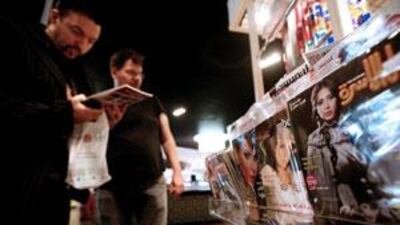Al Waseet International (AWI), the Kuwaiti publisher of the Middle East editions of Marie Claire, Top Gear and Fortune magazines, is restructuring in preparation for an initial public offering in the UAE and Kuwait in 2012, its chief operating officer says. The company's only public listing is in Syria through one of its subsidiaries, the United Group.
But the structure being implemented, which brings United Group and its sister company, Al Wataniya, under the name AWI and divides the company into business units such as AWI Magazines, AWI Dailies, AWI TV and AWI Classifieds, will set it up for a wider public offering, said Majed Suleiman, the chief operating officer of AWI. "We are planning to do it in 2012 because I think it's the perfect thing to do when you are structured very well," Mr Suleiman said. "I think we have to share this experience with a lot of people."
AWI takes its name from Al Waseet, the weekly classified advertising newspaper the company launched in Kuwait in 1993 and that today operates in 35 cities and 12 countries. The paper became the foundation for a company that, in addition to publishing well-known western magazines in Arabic, has won lucrative contracts to sell advertising for major pan-Arab media brands such as Al Jazeera and Al Hayat.
The Al Jazeera deal played a large role in the company's 15 per cent profit growth last year, compared with 2008, Mr Suleiman said. The company, which employs about 3,500 staff, won the contract from Q.Media, the sole advertising representative of Al Jazeera, to sell the pan-Arab satellite broadcaster's advertising outside of its domestic market of Qatar. "It's about US$60 million [Dh220.3m]," Mr Suleiman said. "This is how much we have to sell every year." To reach that volume, the company hired 200 new staff and opened an office dedicated to Al Jazeera ad sales in Paris, he said. Those new employees accounted for half of the workers the company hired last year. Al Jazeera bought the rights to this year's FIFA World Cup, along with the rest of the Arab Radio and Television network's sports rights late last year. The Al Jazeera deal also represents a new direction for the company, which plans to broaden its former focus on print to include more television. AWI launched its own branded television station, Waseet TV, last June, with a mix of television shopping, "infomercial" and "advertainment" programming.
"This is our plan," Mr Suleiman said. "In 2010 and 2011, we will move into television." The move will help offset some of the losses arising from the company's print deals last year, particularly in Saudi Arabia. Mr Suleiman said a loss of property advertising in Saudi last year contributed to Al Hayat's ad sales amounting to only 30 per cent of what they had been the year before. Al Wataniya, AWI's Saudi media sales subsidiary, is a 50-50 joint venture between AWI and Al Hayat's publisher, the Makshaff Group, Mr Suleiman said. AWI is owned by four partners: Bashar Kiwan, the chief executive; Mr Suleiman; Marwan Dimas, the general manager; and Sheikh Sabah Jaber Mubarak Al Sabah, a Kuwaiti businessman. The company plans to continue expanding its titles to new markets within the region, including the introduction of Marie Claire and Top Gear to Qatar and Bahrain this year, as well as focus on its newest regional rights acquisition, Fortune. Fortune, a global business magazine launched in 1930 and owned by Time Inc's Fortune/Money Group, signed a deal last November to launch the Middle East editions of its magazine this spring.
Mr Suleiman said the company would be producing Arabic-only editions to start with, followed by English editions as markets merited, with UAE, Saudi and Kuwaiti editions to launch this summer. The launches come just over a year after Fortune's main rival, Forbes, folded its Arabic edition. Mr Suleiman said the closure of Forbes left a gap that needed to be filled. "I think we need a real, good title for economics in Arabic," he said. "I think our innovation is going to be the ability to bring some new content to the local market, while also bringing some advertising to the local market. That's what we do."
khagey@thenational.ae

